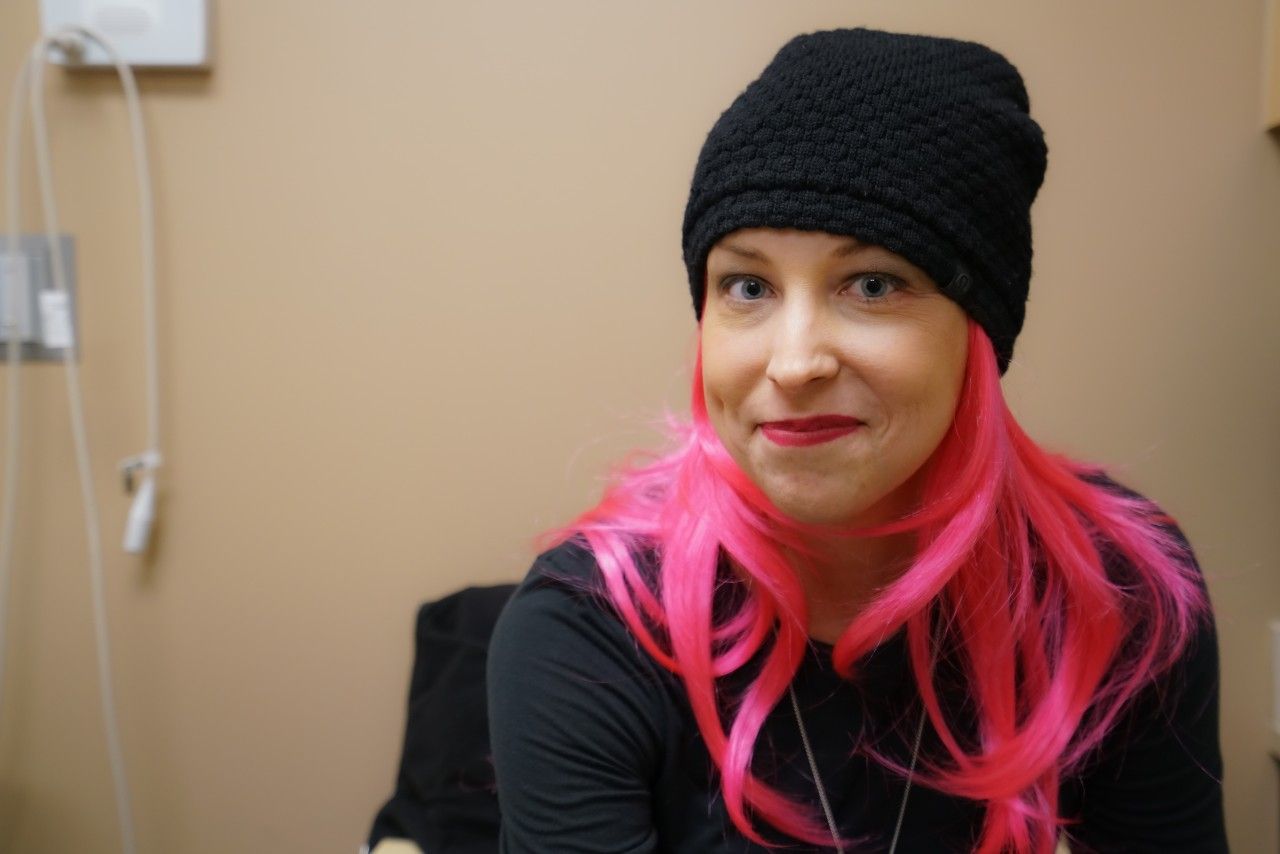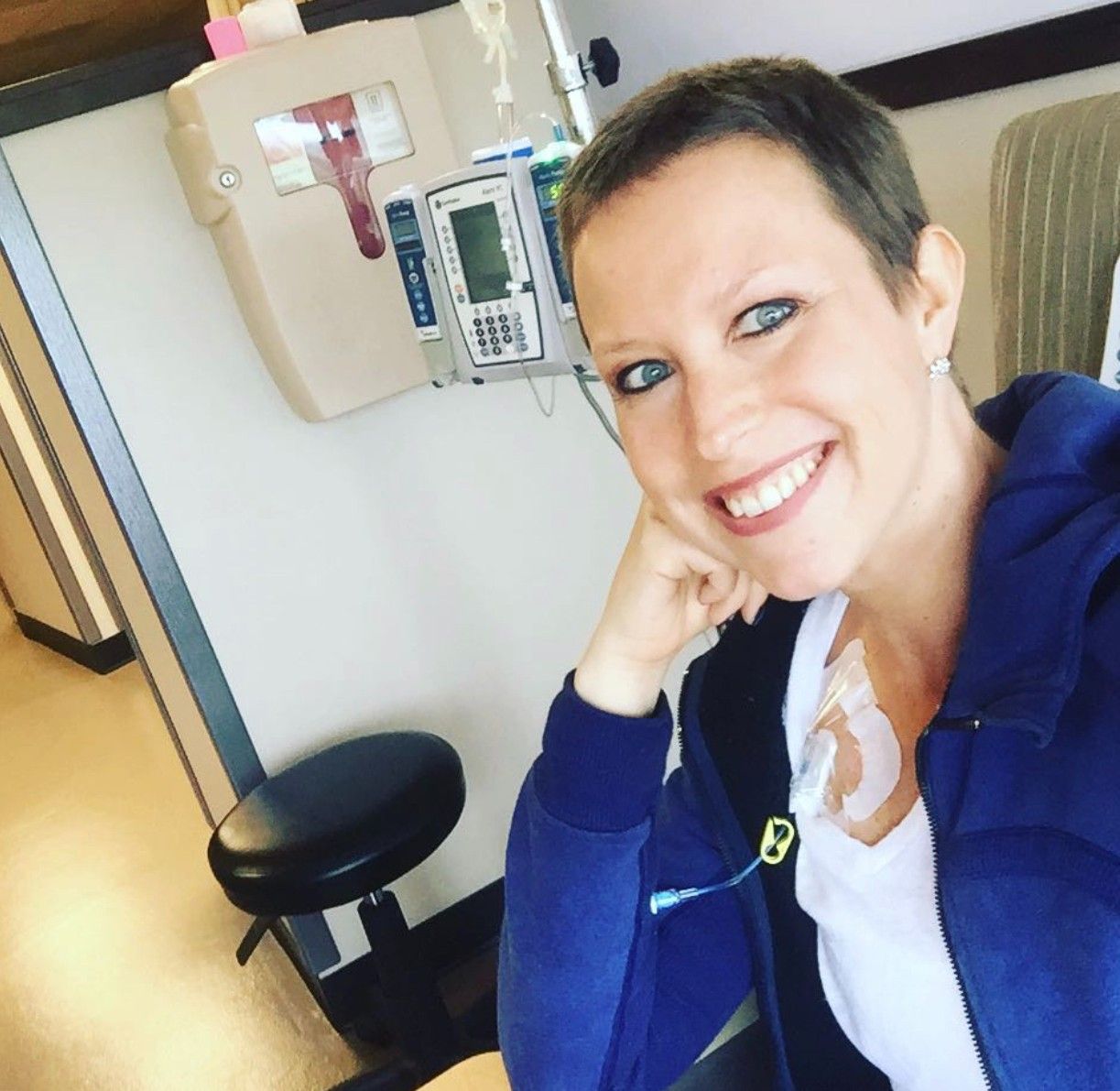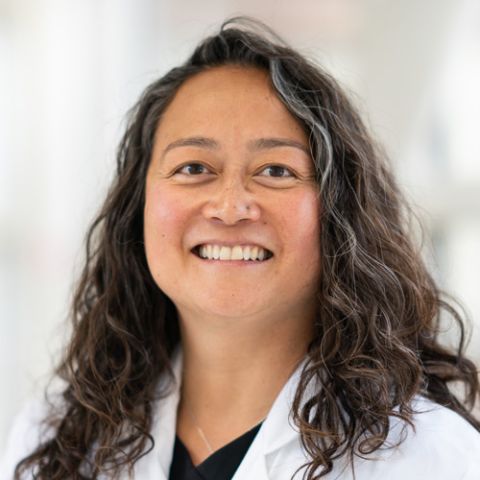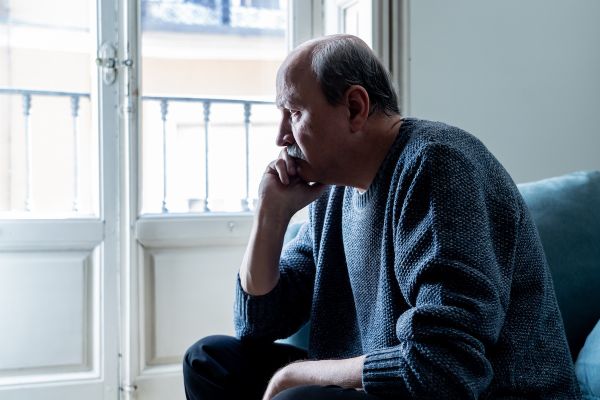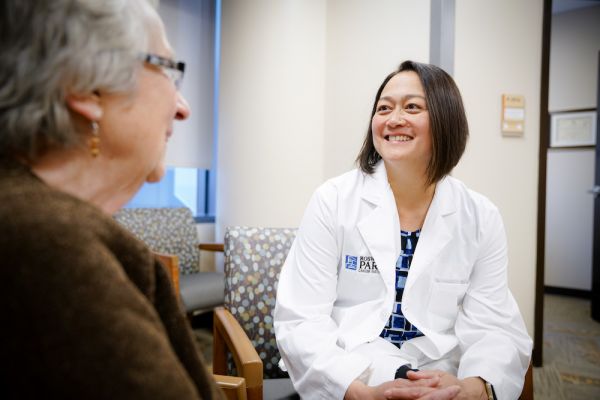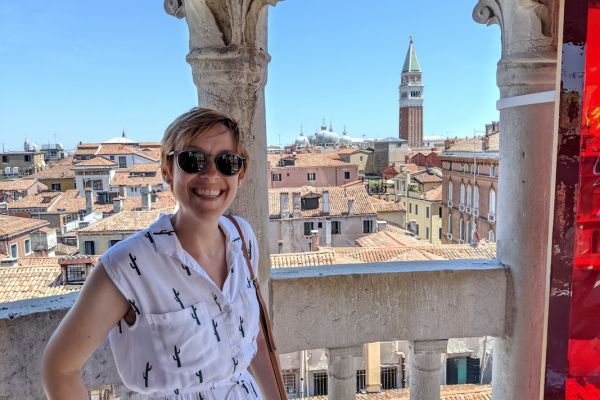Breast cancer runs in Kristy Tubiolo's family. When she was diagnosed in 2016, at the age of 35, it wasn’t exactly a surprise, but it wasn’t expected either.
“I recall being in what I would consider the best shape of my life at the time on the day that I got the phone call, and I still struggle with the challenges after the fact that a diagnosis of that nature put me in,” she says.
“I’m a very active, athletic person and was coming home from yoga class the day I felt the lump. Obviously there’s a certain level of panic out the gate, but then you try to talk yourself down a bit to say ‘don’t panic’ when you don’t know what it is.”
Her maternal grandmother died from breast cancer in 1986 and there are other cancers in her family history; Kristy herself went through genetic testing to see if she carried any mutations that would increase her risk of developing cancer. But nothing out of the ordinary was found.
“My mom had a history of benign tumors for many years when I was growing up. She probably had several procedures for that throughout my childhood but she was always fine,” Kristy says.
Given her mother’s history, Kristy’s doctors agreed the lump she found was likely nothing to worry about, but scheduled a mammogram, only to find a two-centimeter tumor which was biopsied and confirmed as stage 2 breast cancer. “Everything happened pretty quickly after that,” she recalls, with appointments at Roswell Park Comprehensive Cancer Center — a place where a few of her friends worked at the time and where other friends had received care for their cancer. “That kind of helped me navigate the early stages of everything, getting the appointments set up and what I was going to expect, which was really helpful. I’ve always felt very supported by Roswell Park in a lot of ways.”
But that diagnosis wasn’t the only one: seven months after she began treatment, Kristy's mother was also diagnosed with breast cancer. Then, during a PET scan, a cancerous spot was found on Kristy's thyroid. She opted to have her thyroid completely removed and, for her breast cancer, she had a lumpectomy in addition to chemotherapy, a course of treatment agreed upon by her surgeon, Jessica Young, MD, FACS, Director of the Breast Cancer Risk Assessment and Prevention Program at Roswell Park.
“When I met her for the first time, I was high anxiety that day. But she walked in and said, ‘We have the same exact birthday, same year, we’re exactly the same age.’ We bonded over that,” Kristy says.
“My treatment decisions were kind of guided by my genetic testing results. Dr. Young told me I could decide what I wanted to do, that the survival results are almost exactly the same, whether I had a mastectomy or a lumpectomy. I trusted that, but I think that’s one of the things that is really difficult. Being a young adult patient, it’s hard putting your trust in the people who are caring for you and making the right decisions for yourself and getting all the information you need.”
Screening mammograms at Roswell Park
Get your mammogram where the experts are.
Finding strength in Survivorship
Seven years later Kristy – and her mother – are cancer-free and doing well. But that doesn’t mean Kristy is “over” her experience.
As a healthy, active young adult at the time of her diagnoses, Kristy admits it’s been hard to learn to trust her body again. “Even all these years later, I feel like you don’t necessarily fully process what you went through when you’re going through it, which is something I still struggle with sometimes,” she explains. “I was just in a mode of getting through every day and then getting my mom through her day, and she was helping me get through my stuff all at the same time. Your image takes a hit, your confidence takes a hit. I’m plagued with trying to build myself back up.”
During her treatment, and after her surgery, Kristy had a hard time accepting that her body looked different. As commonly happens with people who go through chemotherapy, she lost her hair. “I look a lot more like myself now, all these years later, but there are still things that are not the same." Now that her thyroid has been removed, she’s been dealing with the complications of regulating her medications to keep her body functioning normally, something that can take years to perfect.
“Not only that, but you carry around all the fears and then you see the other people who get diagnosed after you, and the mental toll that that continues to take is very challenging to navigate, I find, even seven years later,” Kristy says.
To further complicate matters, in addition to coming to Roswell Park every few months for maintenance scans and check-ups, Kristy works in a medical field which requires her to visit the center frequently. Her job helps her understand the nuances and genetic implications of her disease but is still another reminder she’s not just working in the industry — she’s someone who’s been through treatment.
To help her through the tough moments, Kristy has become involved in Roswell Park’s Survivorship program, which offers access to counseling and other services for people who have completed treatment and are trying to readjust to life after cancer. Although the program is not something that she would have paid attention to when she was first diagnosed — because there was too much information to process at the time — it’s something Kristy wishes she’d utilized sooner.
“That has made a difference in the way I feel about my situation after the fact,” she says. “I got amazing care at the breast clinic but I think being treated by Survivorship after you’re a certain number of years out, and knowing that it’s a resource available to you, I feel like a whole person again,” she says. “That’s what they’re focused on. They’re concerned about my mental health. They’re concerned about what I am doing to manage the anxiety. That wasn’t happening before.
“I think a very important piece to this is that patients have an awareness that this exists. I ended up here because of a professional conversation I was having with Dr. (Mary) Reid (Director of Survivorship at Roswell Park), and she walked me right down to Survivorship and said, ‘Make your appointments here.’ It’s changed my mindset entirely about how I feel, because I’m no longer in the same room with patients who are in active treatment. That shifts the way I feel.”
Roswell Park's Survivorship Program
Our Survivorship Program brings together many of Roswell Park’s clinical and supportive services, specifically designed for people like you, as you face forward and learn to embrace a new normal.
Survivorship helps start a new chapter
The Survivorship program helps people transition out of active treatment to their life after cancer. The team there also connects people with referrals for services, including physical and occupational therapy, Reiki, nutritional counseling, mental health help and other care. They also can make referrals for additional screenings that might be needed in the future.
“We talk about prevention. That’s one of the big things survivors might not hear, things they can do to modify or decrease the risk of recurrence of other cancers. We not only ask about smoking but about exercise, alcohol, depending on the kind of cancer they had, we’ll talk about their diets. It’s comprehensive, it’s holistic,” says Tessa Faye Flores, MD, Medical Director of Cancer Screening and Survivorship.
In addition to advocating for patients to access and benefit from the Survivorship program at Roswell Park, Kristy wants people to become their own best and loudest advocate and to learn all they can about their health and, if diagnosed, their particular type of cancer.
“It’s a really powerful thing. Educate yourself, advocate for yourself, talk to people, have resources and utilize the resources that are available so you can feel better about your situation,” she says. Kristy also encourages people to know their family history when it comes to cancer and to consider genetic testing to better understand their risks. “If there’s a way to know something that’s going to potentially help you improve your chances of getting well or staying well, do it. That’s how you keep your control.”
Editor’s Note: Cancer patient outcomes and experiences may vary, even for those with the same type of cancer. An individual patient’s story should not be used as a prediction of how another patient will respond to treatment. Roswell Park is transparent about the survival rates of our patients as compared to national standards, and provides this information, when available, within the cancer type sections of this website.
